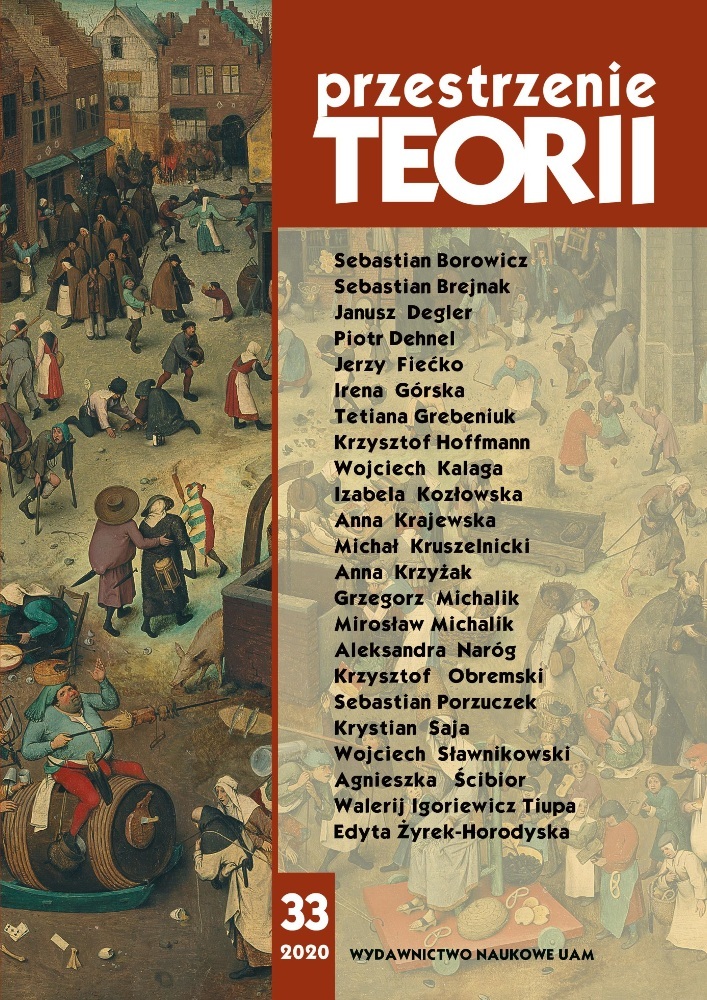Abstrakt
The paper discusses Georges Bataille’s endeavor to express “the Impossible” by means of specific language employed first and foremost in his works of literary fiction (L’Histoire de l’oeil (Story of the Eye), Madame Edwarda, Le bleu du ciel (Blue of Noon). This is carried out by first providing a general outline of Bataille’s philosophical thought with due attention drawn to the aporias that open up before all projects of heterology inasmuch as they seek to both approximate and communicate the experiences that elude rational thought and language which traditionally works at its service. What follows is a description and explication of the literary and performative means which Bataille employs in his fiction in order to authenticate his depictions of the “inner experience” and the figure of “the Impossible”. Several of the most prominent theoretical approaches to the specificity of Bataille’s transgresssive écriture are referred to and further contrasted with the philosopher’s consistent dissatisfaction with the limitations that language and rational, sense-oriented thought poses to the task of voicing the essence of the “inner experience”. The article concludes with the argument that even literature cannot free itself from pragmatic utility resulting from the structural limitations of language. What literature can achieve, however, is to point to the Impossible and inexpressible, and endlessly invoke and respond to it. Regarded in this way, Bataille’s revelatory language can be considered in a wider, French poststructuralist context, which emphasises the position of Heidegger as a reference point for Derrida and Blanchot.
Bibliografia
Barthes R., The Metaphor of The Eye, [w:] tegoż, Critical Essays, ed. by R. Howards, Evanston 1972.
Bataille G., L’anus solaire, [w:] tegoż, Oeuvres Complètes, t. 1, Gallimard, Paris 1970–1988 [dalej w bibliografii jako OC z podaniem numeru tomu].
Bataille G., L’Érotisme, OC: t. 10.
Bataille G., L’expérience intérieure, OC: t. 5.
Bataille G., L’histoire de l’oeil, OC: t. 1.
Bataille G., L’Impossible, OC: t. 3.
Bataille G., La conjuration sacrée, OC: t. 1.
Bataille G., La littérature et le mal, OC: t. 9.
Bataille G., La pratique de la joie devant la mort, OC: t. 1.
Bataille G., Le bleu du ciel, OC: t. 3.
Bataille G., Le Coupable, OC: t. 5.
Bataille G., Lettre a X., chargé d’un cours sur Hegel, OC: t. 5.
Bataille G., Madame Edwarda, OC: t. 3.
Bataille G., Préface de Madame Edwarda, OC: t. 10.
Bataille G., Sur Nietzsche, OC: t. 6 (La Somme Athéologique, t. II).
Bataille G., Théorie de la religion, OC: t. 7.
Blanchot M., Kafka et la littérature, [w:] tegoż, La part du feu, Paris 1949.
Blanchot M., L’expérience-limite, [w:] tegoż, L’entretien infini, Paris 1969.
Blanchot M., L’oeuvre et l’espace de la mort, [w:] tegoż, L’espace littéraire, Paris 1955.
Blanchot M., La parole plurielle, [w:] tegoż, L’entretien infini, Paris 1969.
Blanchot M., Nietzsche i pismo fragmentaryczne, przeł. M. Kruszelnicki, [w:] Nietzsche i romantyzm, red. M. Kruszelnicki, W. Kruszelnicki, Wrocław 2013.
Brewer B., Unsaying Non-Knowledge: Georges Bataille and the Mysticism of Writing, „Res Cogitans” 2013, vol. 4, nr 3.
Carlson M., Performans, przeł. E. Kubikowska, Warszawa 2007.
Derrida J., De l’économie restreinte à l’économie générale. Un hegelianisme sans réserve, [w:] tegoż, L’écriture et la différance, Éditions du Seuil, Paris 1967.
Derrida J., Passions, Paris 1993.
Foucault M., Présentation, [w:] G. Bataille, OC: t. 1.
Licencja
Autorzy
Autorzy tekstów przyjętych do publikacji w czasopiśmie „Przestrzeniach Teorii” są zobowiązani do wypełnienia, podpisania i odesłania na adres redakcji umowy o udzielenie nieodpłatnej licencji do utworów, z zobowiązaniem do udzielania sublicencji CC.
Zgodnie z umową, autorzy tekstów opublikowanych w czasopiśmie „Przestrzeniach Teorii” udzielają Uniwersytetowi im. Adama Mickiewicza w Poznaniu niewyłącznej i nieodpłatnej licencji oraz zezwalą na użycie sublicencji Creative Commons Attribution-NonCommercial-NoDerivatives 4.0 International (CC BY-NC-ND 4.0).
Autorzy zachowują prawa do dalszego, swobodnego rozporządzania utworem.
Autorzy, którzy wykorzystują w swoim tekście cudze utwory (np. ilustracje, fotografie) proszeni są o dostarczenie do redakcji czasopisma zgodę na publikację od uprawnionych podmiotów.
Użytkownicy
Zainteresowani użytkownicy internetu uprawnieni są do korzystania z utworów opublikowanych po 2015 roku „Przestrzeniach Teorii” tylko w calach niekomercyjnych, pod następującymi warunkami:
- uznanie autorstwa - obowiązek podania wraz z rozpowszechnionym utworem, informacji, o autorstwie, tytule, źródle (odnośniki do oryginalnego utworu, DOI) oraz samej licencji;
- bez tworzenia utworów zależnych - utwór musi być zachowany w oryginalnej postaci, nie można bez zgody twórcy rozpowszechniać np. tłumaczeń, opracowań.
Do wszystkich tekstów opublikowanych przed 2015 r. prawa autorskie są zastrzeżone.
Inne
Uniwersytet im. Adama Mickiewicza w Poznaniu zachowuje prawo do czasopisma jako całości (układ, forma graficzna, tytuł, projekt okładki, logo itp.).

